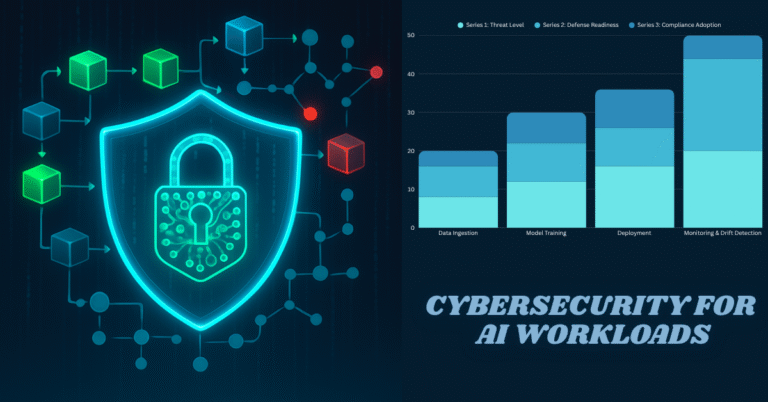
Google’s New Ranking Factor Is Quietly Killing Small Developer Blogs (2025 Guide)
🔍 Introduction: Why Your Traffic Suddenly Tanked
If you’ve noticed your blog traffic dip despite regular posting, strong internal links, and clean SEO — you’re not alone. In 2025, thousands of small developer-focused blogs are seeing sudden drops in impressions and clicks.
The culprit? Google’s latest algorithm refinement, which quietly introduced a new ranking factor that disproportionately affects smaller, niche tech blogs.
Need Fast Hosting? I Use Hostinger Business
This site runs on the Business Hosting Plan. It handles high traffic, includes NVMe storage, and makes my pages load instantly.
Get Up to 75% Off Hostinger →⚡ 30-Day Money-Back Guarantee
Let’s break it all down — what changed, why it matters, and how to recover before your rankings vanish completely.
🧠 What’s the New Google Ranking Factor in 2025?
While Google’s official docs remain vague, SEO experts and Search Central forums reveal the rise of a compound factor called “Topical Authority Cohesion” (TAC).
In short:
Google now evaluates how consistently your site stays within a tight topical cluster and how often you publish expert-level signals within that cluster.
If your developer blog writes about React today, SEO tools tomorrow, and micro-SaaS next week — your authority gets diluted in Google’s eyes.
Instead, Google rewards blogs that stay focused, consistent, and deeply niche within a specific subdomain of tech.
📉 Why Small Developer Blogs Are Hit Hardest
- Broad Topic Spread = Low TAC Score
Many dev blogs (like yours) cover multiple categories: frontend, AI tools, SEO, hosting, etc. This reduces perceived topical expertise unless internal structure + link hierarchy is bulletproof. - Lack of External Authority
Smaller blogs often lack backlinks from high-authority dev sites, making it harder to validate trust on varied topics. - Fewer User Signals
Google’s new layer increasingly prioritizes dwell time, scroll depth, and content satisfaction metrics — harder for blogs with fewer engaged users. - Overlapping with AI Content
Generic tutorials or roundup posts are easily mimicked by AI. Google’s new ranking models demote low-engagement posts, especially if they appear semi-generic.
📊 Real Signs You’ve Been Hit by the Update
If you’re unsure whether this ranking factor is affecting you, look for these:
- 📉 Declining impressions for older posts that previously ranked
- 📉 Clicks down despite high GSC “Position” for some keywords
- ⚠️ Posts on tangential topics (like SaaS if your site is mostly about JS) losing visibility
- 🧩 Fewer keyword variations showing in GSC
- 🔍 Lower placement in “Related Queries” on Google Discover
🔎 Example: A Case Study Breakdown
Let’s say your dev blog has 40 articles:
- 15 on AI tools for developers
- 10 on frontend frameworks
- 5 on SEO tips
- 10 on freelance income and hosting
In 2024, this mix was fine. But in 2025, unless you cluster those into well-structured silos and prove topical expertise, Google now sees this as scattered authority.
Result? None of your categories dominate enough to win trust.
🔧 How to Survive (and Win) Under the New System
✅ 1. Pick a Core Topic and Build Deep Authority
Choose your primary topical identity and make 60–70% of your upcoming content tie back to it.
Examples:
- React + State Management? → Go all-in on the modern React ecosystem.
- AI Coding Tools? → Focus exclusively on assistants, prompt engineering, tool comparisons, workflows.
- SEO for Devs? → Build the definitive hub for technical SEO and developer blogs.
✅ 2. Create Topical Clusters (Not Just Categories)
A topical cluster means:
- 1 pillar page (e.g. “The Complete Guide to AI Coding Tools in 2025”)
- 5–10 cluster posts supporting that (e.g. Copilot vs Codeium, AI pair programming myths, etc.)
Use internal linking aggressively, not just for navigation — but for reinforcing expertise.
✅ 3. Increase E-E-A-T Signals (Experience, Expertise, Authority, Trust)
Google’s systems now prioritize real authorship and first-hand insights.
Useful Links
- Forget Selenium: Building AI Agents with browser-use & DeepSeek (The New 2026 Standard)
- The End of Localhost? Why Cloud Dev Environments (CDEs) Are Taking Over
- Cybersecurity for AI Workloads: Protecting ML Pipelines in 2025 and Beyond
- AI-Native Grads vs. Traditional Developers: The Talent War CEOs Are Betting On
- 📛 What Developers Should Stop Doing in 2025 (And What to Do Instead)
- Analytics Tools for Developers That Go Beyond Google (2025 Guide)
Tips:
- Add a byline with dev credentials or projects
- Include first-person insights (“Here’s what happened when I used Codeium…”)
- Link out to your GitHub, X (Twitter), StackOverflow, etc.
- Cite real-world benchmarks, screenshots, and walkthroughs
✅ 4. Reduce “Topic Drift”
Even if you’re passionate about several topics, stop publishing content that’s:
- Too far from your site’s core identity
- Not linked back to your content clusters
- Filler or AI-written without insights
Instead:
Repurpose “off-brand” ideas into guest posts or Medium exclusives to avoid hurting site cohesion.
✅ 5. Improve UX & Scroll Signals
Don’t forget — engagement metrics now fuel ranking.
Enhance:
- Table of Contents (anchor links help)
- Short intro paragraphs with clear value
- Readable spacing and mobile layout
- Sticky headers / scroll prompts
- Image-rich posts with diagrams, charts, and code blocks
Tools like WP Rocket + Quic.Cloud or LiteSpeed Cache can also boost CWV scores.
💣 What Not to Do (Common Mistakes Now Penalized)
- ❌ Publishing short “news reaction” blogs with little depth
- ❌ Copy-pasting ChatGPT content without insights
- ❌ Creating generic listicles like “Top 10 Hosting Tools” without a niche twist
- ❌ Using keyword stuffing or meta manipulation
- ❌ Syndicating the same post on all platforms without rewriting
🔮 What Google Says (and Doesn’t Say)
Google’s public guidelines still push the “create helpful content” narrative. But SEO pros have noticed behind the scenes:
- Updates increasingly de-rank pages that don’t match user intent within 3 seconds
- Google’s AI crawlers now analyze author tone, originality, formatting, and context
- Video and code snippet coverage may soon influence rankings for developer blogs
🧠 How to Future-Proof Your Dev Blog
- Double down on your niche
Don’t be another “tech blog.” Be the site for “lightweight JS frameworks” or “AI dev tool reviews.” - Make pillar content evergreen
Update older high-ranking blogs, expand them into resource hubs, and redirect outdated posts into newer clusters. - Collect user signals
Use privacy-focused analytics (like Plausible, Umami, or your analytics tools guide) to track what users love. - Build backlinks smartly
Focus on real mentions from GitHub projects, newsletters, Reddit, Dev.to, or Hacker News — not low-quality directories.
🎁 Bonus: Free Checklist — Fix Your Blog’s Topical Authority Score
✅ Pick 1–2 core themes
✅ Build content clusters with internal links
✅ Use author bios with verifiable dev history
✅ Optimize headings for clarity & UX
✅ Remove or noindex unrelated legacy posts
✅ Boost engagement with visuals and scroll anchors
✅ Cross-link related content with CTAs
✅ Rewrite syndication posts to avoid duplication
Download the full checklist here (or create a PDF version on your site and offer via lead magnet).
🧭 Final Thoughts
Google isn’t trying to kill small developer blogs. But in 2025, their new ranking layers favor expertise, consistency, and niche mastery — and that’s a shift many small creators aren’t ready for.
If your site tries to be everything for everyone, it will eventually be nothing for no one in Google’s eyes.
Q: Is topical authority more important than backlinks now?
A: Yes — especially for new or small blogs. Backlinks help, but they’re less impactful without strong topical signals.
Q: Can I still write about different tech topics?
A: Only if they’re tied together by a strong internal link structure or brand voice. Otherwise, consider separate domains or Medium pieces.
Q: Will Google penalize blogs with AI content?
A: Not if it’s original, insightful, and clearly enhanced with human experience. Generic AI output will likely be filtered out over time.

🚀 Let's Build Something Amazing Together
Hi, I'm Abdul Rehman Khan, founder of Dev Tech Insights & Dark Tech Insights. I specialize in turning ideas into fast, scalable, and modern web solutions. From startups to enterprises, I've helped teams launch products that grow.
- ⚡ Frontend Development (HTML, CSS, JavaScript)
- 📱 MVP Development (from idea to launch)
- 📱 Mobile & Web Apps (React, Next.js, Node.js)
- 📊 Streamlit Dashboards & AI Tools
- 🔍 SEO & Web Performance Optimization
- 🛠️ Custom WordPress & Plugin Development







